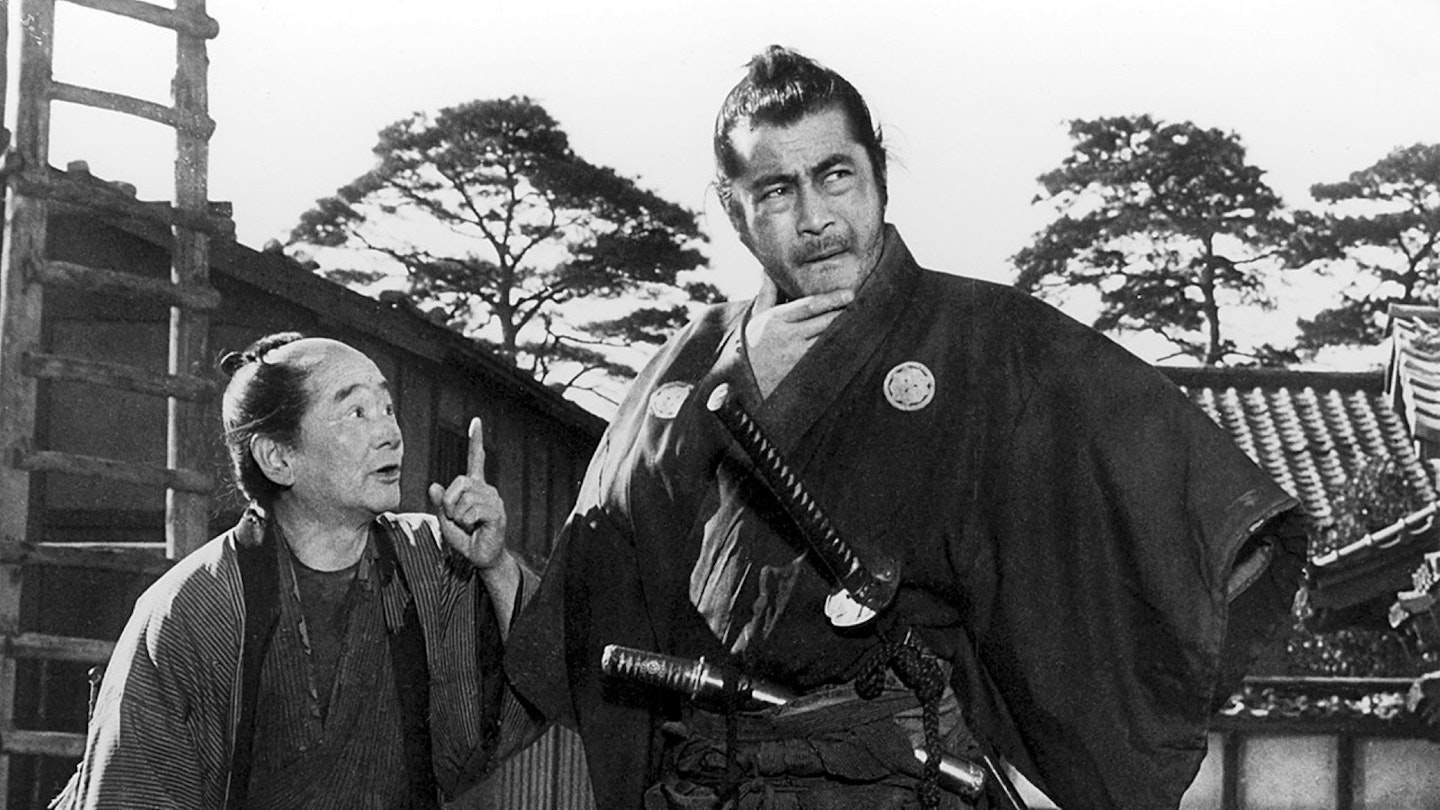Based on a story by Shugoro Yamamoto (whose novel would be the inspiration for Kurosawa’s Red Beard), this splendid samurai satire was conceived before Yojimbo and was initially to focus on an itinerant whose quick wits atoned for his shortcomings with a sword. However, Yojimbo's success persuaded Akira Kurosawa to rework the screenplay, which was originally to have been directed by Hiromichi Horikawa before the studio asked Kurosawa to take over.
It would prove to be one of his most enjoyable assignments and his fondness for the scenario shines through the numerous instances of ribald humour. Sanjuro's first meeting with the junior samurai is particularly amusing, as Kurosawa contrasts their prim Bushido eagerness with the older man's unkempt cynicism. With their gung-ho energy, virtuous enthusiasm and meticulous attire, Yuzo Kayama's comrades in arms are right out of the jidai-geki textbook and Kurosawa delights throughout in mocking generic convention - right down to exploiting such Kabuki clichés as the flowing stream as a means of conveying messages.
Yet, Kurosawa approached his trademark theme of illusion and reality with typical conviction, with even Sanjuro himself failing to heed his own advice of not judging by appearances by overlooking the unassuming sapience of the chamberlain's seemingly dotty wife (Takako Irie). Indeed, it's this recognition of her insight and his own arrogance that prompts him to deliver the surprisingly aggressive concluding speech, in which his indulgent attitude towards his idiotic protégés turns to despairing anger.
Mifune's showdown with Tatsuya Nakadai provides the film's action highlight, as the villain is cleaved through the heart with a single slash that unleashes a gush of gore that was actually carbonated chocolate sauce. The conquest of the superintendant's minions is equally pitiless. But Kurosawa mischievously undercuts the chambara savagery by inserting shots of Irie and her daughter, Reiko Dan, being enraptured by the beauty of the camelias (which had been used as the attack signal) floating gently by on the placid water. Such subtle mastery makes Sanjuro cherishable and a treat.
